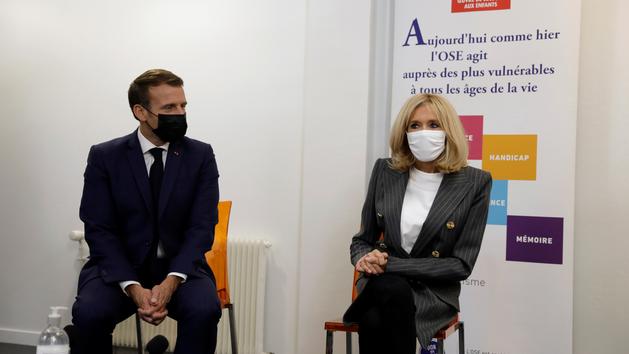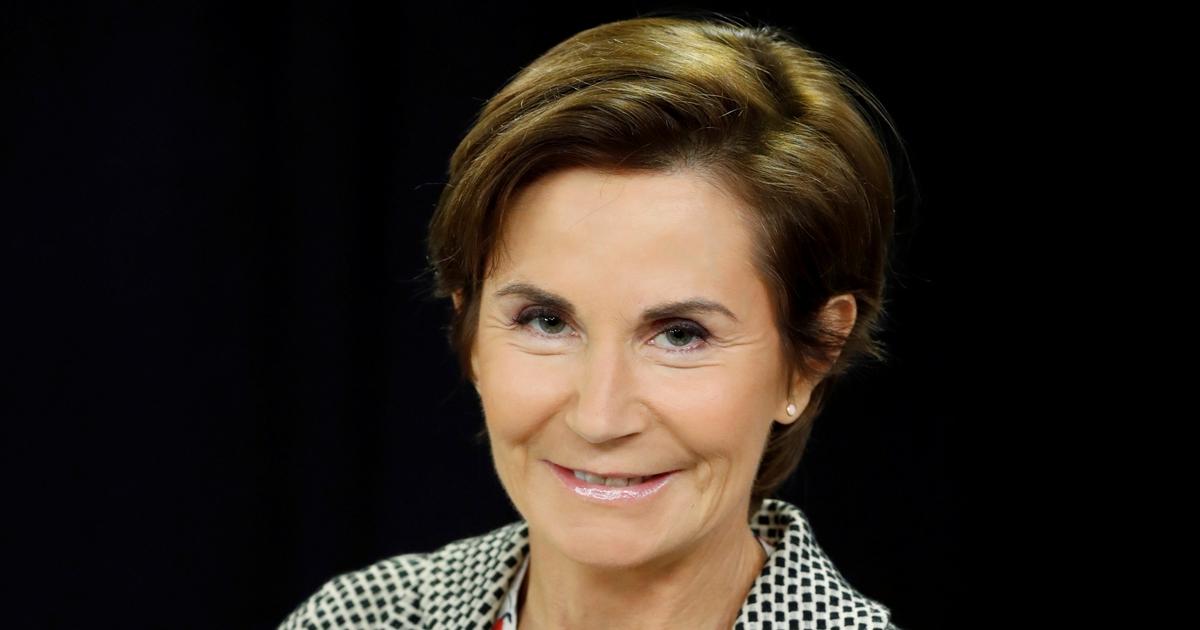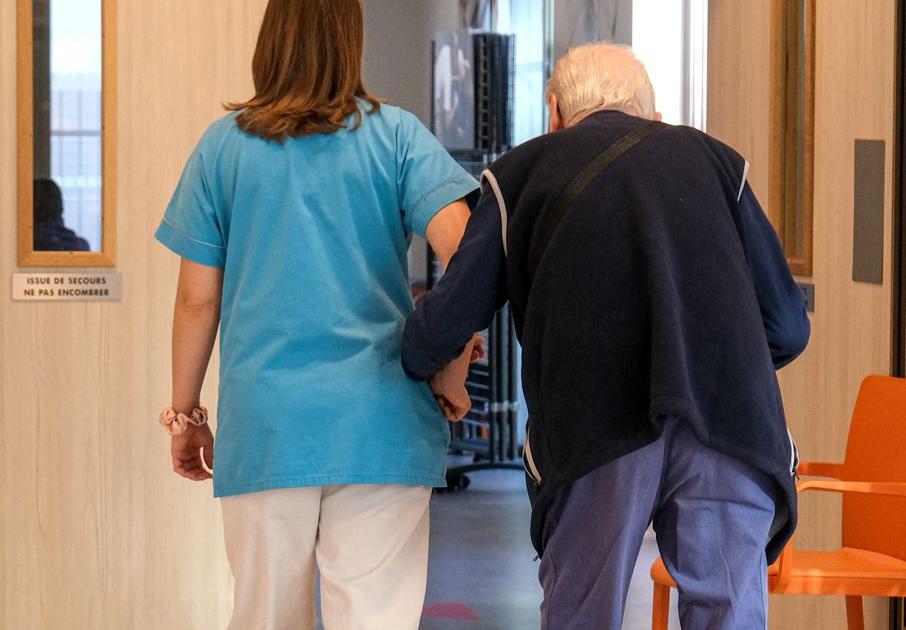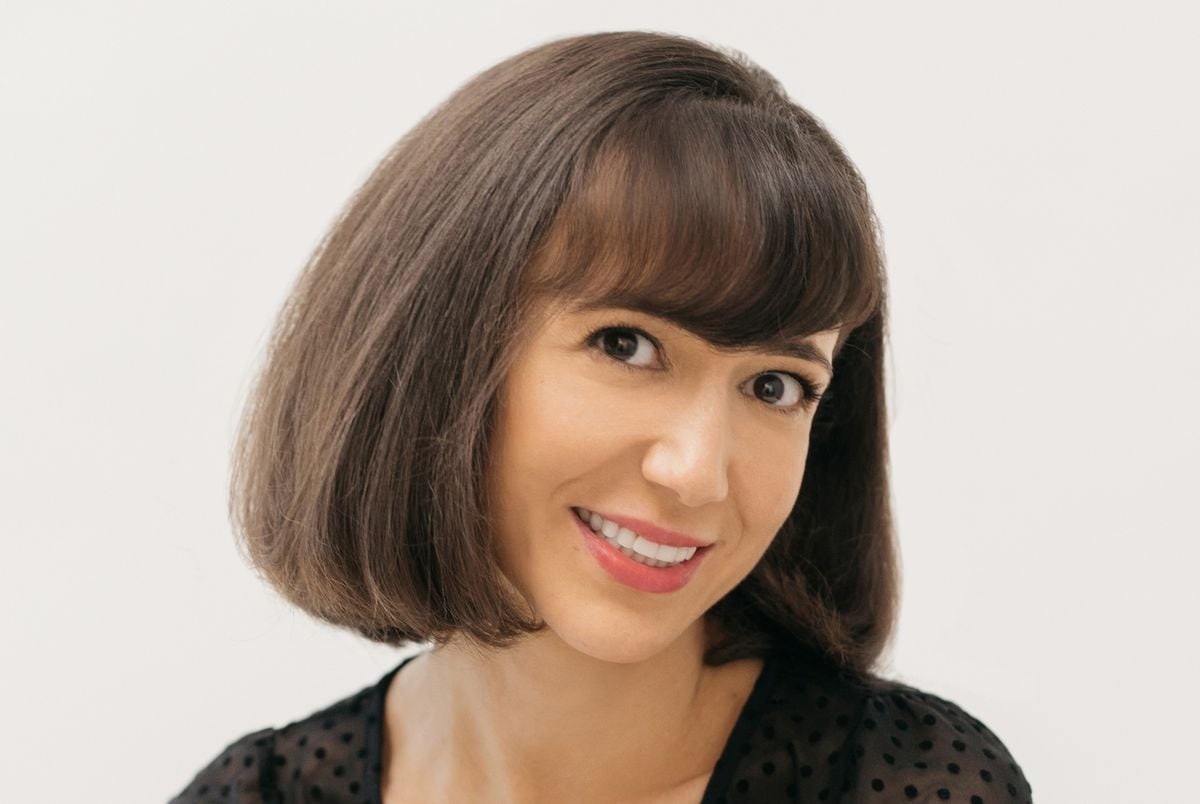Whether it is for a father with Alzheimer's disease, a wife diagnosed with Parkinson's, a paraplegic child, a sister suffering from bipolar disorder or an autistic son, there are today 8 to 11 million in France to take care of people in loss. autonomy due to disability or chronic illness.
Emmanuel Macron, his wife Brigitte Macron and the Secretary of State for Disabled People Sophie Cluzel paid a visit on Tuesday, October 6 to the Handicap Respite Platform for Caregivers (PHARE), within the association Œuvres de aide aux enfants (OSE) ), in the 12th arrondissement.
Read also: Family caregivers come out of the shadows
The PHARE structure, dedicated to caregivers, a true “
respite platform
”, strives to bring together the multiple players who support people with disabilities and their families.
As the visit began, the president underlined on Twitter that “
it is often difficult for caregivers to reconcile personal and professional life, to breathe, to find a moment of respite, to think of oneself.
Everyone has a role to play to support them, to relieve them, to lighten their daily lives.
Solidarity is within reach of all
”, he pleaded.
During his visit to the structure, Emmanuel Macron first met the team that manages the requests and questions of caregivers on a daily basis.
Sofia, who is in charge of the phone calls, explained that she was in great demand during the confinement: “
Many people with reduced mobility asked me how to be tested for Covid-19 when they could not move in the laboratory.
We offered them solutions, including home tests.
Others, asthmatics, had questions about wearing a mask
”.
Administrative hassles
The president then spoke with family “helpers” who spoke about their daily difficulties.
Conchita, mother of Zoe, aged 35 and suffering from Rett syndrome, explains that she wishes her daughter "
not just a place
" in society, but "
a fair place
".
In particular, she deplores the need to have to file a file with the MDPH (Departmental House for the Disabled) every two years to obtain the Disabled Adult Allowance (AAH).
The disabled adult allowance is in fact not awarded for life, there is no automatic renewal of assistance, and caregivers must regularly “prove” that their loved one has a disability.
The only exception: since January 1, 2020, the AAH is in principle renewed automatically, but only in the event of incapacity of at least 80%.
"
It is absurd to renew the file for the AAH all the time, my daughter Léa has Down's syndrome, and it is rare for a Down's syndrome to develop for the better,
" blows a caregiver.
"
Yes, in your case you should have it for life, we will take care of it,
" said Sophie Cluzel.
To read also: Caregivers: Brigitte Macron at the "respite house", a first brought to swarm
The issue of inclusive school was also raised, the participants stressing in particular the need to have specialized teachers.
"
It sounds silly said like that, but what a joy to have a child who can write down his mom's phone number!"
», Exclaimed a caregiver.
Sophie Cluzel has affirmed her desire to set up more multi-disabled classes within schools, as was experienced at the Anne-Franck-des-Molières school, in Essonne, last September.
All the carers have also rented the PHARE structure, which allows them to exchange views with other parents who encounter the same problems on a daily basis.
“
Before being caregivers, we are first and foremost parents, and with this platform, we can talk to people who also have a disabled child
,” said one of the caregivers.
"
And PHARE also makes it possible to establish communication with all the players, and especially with the MDPH
", he added.
Read also: Family caregivers: the beginning of taking employers into account
Since 2017, the government has undertaken to do everything to "
help those who help
": the mobilization and support strategy "Act for helpers" (2020-2022) launched in October 2019, endowed with 400 million euros , including 105 million for respite solutions, sets the objective of recognizing situations and improving the quality of life for caregivers. In addition to the multiplication of these reception centers, this strategy has set up a single call number (360) and above all, since October 1, a "caregiver leave" (CPA) compensated from 44 to 52 euros per person. day. The development of “respite homes”, which aim to support people with disabilities and their families, has also played an important role in improving the daily lives of caregivers. However, certain problems persist, in particular with regard to "
the aids and supports offered to disabled people once they have passed the 20-year mark
", reports Conchita.









